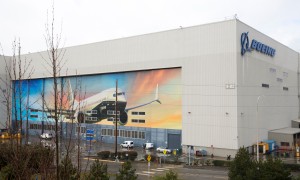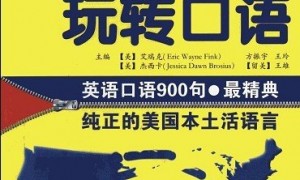威尔士加的夫——伴随着雷鸣般的响声和蓝色闪光,在这个工业城市的一座钢铁厂里,电弧炉一次可以融化170吨废铁,将它们制成英国各地建设项目所需的钢筋。
The furnace, decked out with all the latest gear, helps keep costs down by relying on local scrap instead of imported materials. It was part of a broad $500 million investment plan to make the steel mill competitive and profitable.
这座电弧炉拥有各种最新装备,使用当地废钢铁而非进口材料,有助于降低成本。这是一个综合投资计划的一部分。整个计划规模达5亿美元,旨在提升这家钢铁厂的竞争力和赢利能力。
But China has stymied the strategy.
然而,中国让这个计划搁浅了。
The steel mill, owned by the privately held Celsa Group of Spain, just cannot compete with Chinese rivals, which offered products at 20 percent below prevailing rates in Britain. Celsa estimates that Chinese companies at one point accounted for about half of the region’s sales in a certain type of reinforcing bar, up from essentially nothing just four years ago.
这座钢铁厂隶属于西班牙私人公司Celsa集团,完全无法与中国对手竞争,因为中国产品的报价比英国当前的市价低20%。Celsa集团估计,在某个时候,该地区销售的某类型钢筋大约一半来自中国公司,而仅仅四年之前它们的份额几乎为零。
“It’s nice to have free trade, but it has to be fair,” said Luis Sanz, the managing director for British operations at Celsa.
“自由贸易是件好事,但前提是必须公平,”Celsa集团负责英国业务的执行董事路易斯·桑斯(Luis Sanz)说。
The steel industry sits at the crux of a major debate playing out across the world economy, one that could soon be intensified by a looming change in the global trade rules.
钢铁行业处在一个涉及全球经济各领域的重大争议的核心,而全球贸易规则即将发生改变,这个问题可能也会很快随之愈演愈烈。
As China’s economy has slowed, the country’s manufacturers, in varied areas like solar panels, tires, aluminum and shoes, have been in a desperate hunt to maintain sales and avoid layoffs. Looking beyond their borders, many are offering rock-bottom prices to win orders.
随着中国经济放缓,该国太阳能组件、轮胎、铝材和鞋等各种领域的生产商正在拼命维持销售,避免裁减人员。放眼全球,为了赢得订单,很多公司报出了最低价格。
The heavy discounting has fed a backlash. Politicians like the American presidential candidates Donald J. Trump and Bernie Sanders are railing against free trade, saying the rules hurt domestic workers. Countries are crying foul, claiming that Chinese exporters are dumping goods.
这样的大幅折扣引发了抵触情绪。美国总统候选人唐纳德·J·特朗普(Donald J. Trump)和伯尼·桑德斯(Bernie Sanders)等政界人士在大力批驳自由贸易,宣称其中的规则给美国劳动者造成了损失。各国纷纷大呼不公,声称中国正在向国外倾销商品。
And the dynamics are getting more complicated, as a crucial provision of global trade rules expires in December.
随着全球贸易规则的一个关键条款将在今年12月到期,情况正在变得愈加复杂。
When China joined the World Trade Organization in 2001, the country was labeled a nonmarket economy, at the insistence of the United States and Europe. The technical designation makes it easier to prove that China is dumping goods in foreign markets, allowing countries to slap tariffs on those products. In March, the United States imposed a prohibitive 266 percent tariff on certain Chinese steel makers for selling below cost.
中国于2001年加入世界贸易组织(WTO)的时候,在美国和欧洲的坚持下,中国被打上了“非市场经济体”的标签。有了这个技术性的说法,要证明中国向海外市场倾销商品就变得比较容易,于是各国便可以对这些产品征收关税。今年3月,美国对一些低于成本价销售产品的中国钢铁企业征收了266%的惩罚性关税。
Calculating production costs in China is tricky. The true costs are often obscured by politically guided policies that benefit companies, including state-backed loans at below-market interest rates and free land for job-creating factories.
计算中国的生产成本是一件颇为棘手的事情。政治导向的政策会给企业带来一些优惠,比如提供低于市场利率的国家扶持贷款、为提供就业岗位的工厂无偿供应土地等等,而这些政策常常会掩盖真实的成本。
Given China’s designation in the W.T.O., the United States, Europe and others can use a proxy country, a locale with a similar level of income and better data like Poland, Thailand or South Africa, to help determine production costs. The proxy countries often have higher costs than China, which has greater economies of scale.
由于中国被WTO视为非市场经济国家,美国、欧洲和其他国家就可以使用一个收入水平相同、但数据更准确的地区作为代理国——比如波兰、泰国和南非——来帮助确定产品的成本。这些代理国的成本常常高于中国,因为中国拥有更大的规模经济。
China is beginning a global lobbying push to bar the use of proxy countries. Chinese ministers have been meeting with overseas leaders and with executives of businesses that sell to China. The country is calling for W.T.O. members to “acknowledge China’s market economy status” and “to adopt the necessary measures as soon as possible,” the commerce ministry said in a faxed response to questions.
中国已经开始在全球开展游说活动,希望停止使用代理国的做法。中国的部长们一直在与外国领导人及在中国销售产品的企业高管沟通。商务部在一份回应问题的传真中表示,中国呼吁WTO成员“承认中国的市场经济地位”,并“尽快采取必要措施”。
But the rules are somewhat ambiguous, complicating China’s efforts. The 2001 W.T.O. agreement explicitly authorizes the use of proxy countries through December in cases against China, but it is silent about what happens after that.
不过,规则本身有些模糊,给中国的努力增添了变数。2001年的WTO协议明确规定,到今年12月底,针对中国使用代理国的做法将到期,但却没有说之后会怎么样。
The Europeans and Americans are skeptical about whether China actually qualifies as a so-called market economy. In a market economy, supply and demand are the guiding forces. In China, the government also plays a major role, dictating investments, strategy, even when a plant can close.
中国是否真的有资格获得市场经济的地位?欧洲和美国对此表示怀疑。在市场经济体中,供需才是主导力量。但在中国,政府也发挥了重要作用,能够决定投资和策略,乃至一家工厂什么时候可以关停。
China’s policies have helped create extensive overcapacity. China makes 50 percent of the world’s steel, 55 percent of its aluminum and 60 percent of its cement, even as its domestic demand has weakened.
对于大量的产能过剩,中国的政策起到了推波助澜的作用。即便国内需求有所减弱,中国出品的钢铁仍占全球产量的50%,铝材占55%,水泥占60%。
“They’re nowhere near a market economy, and it’s delusional to think that they are,” said Leo W. Gerard, the president of the United Steelworkers Union.
“他们远非市场经济,以为他们是市场经济纯属幻觉,”美国钢铁工人联合会(United Steelworkers Union)会长利奥·W·杰拉尔德(Leo W. Gerard)说。
The tensions have been palpable in steel.
在钢铁行业,形势的紧张显露无遗。
Celsa and other Western steel manufacturers got clobbered by the global financial crisis that started in 2008, as demand sank and prices dropped. When the industry started to recover, they faced a growing competitive threat from China.
于2008年开始的全球金融危机导致钢铁需求疲软、价格猛跌,令Celsa等西方钢铁生产商遭受了重挫。就在行业开始复苏的时候,它们又面临着来自中国的日益加剧的竞争威胁。
In the last three years, Chinese steel exports more than doubled to 107 million metric tons, higher than the annual raw steel production of the United States. Prices fell steeply, although they have perked up lately on speculation of renewed demand in China.
过去三年,中国钢材出口量增加了一倍以上,达1.07亿吨,超过美国一年的粗钢产量。钢价急剧下跌,尽管对中国需求复苏的预测最近带来了一波价格反弹。
The result has been a shakeout in steel.
其结果就是钢铁行业的重组。
Celsa has not turned a profit in seven years. ArcelorMittal, the world’s largest steel maker, announced an annual loss of nearly $8 billion in February, blaming Chinese competition. Since the beginning of last year, United States Steel has cut 5,000 jobs and warned that thousands of others are at risk.
Celsa已经七年没有盈利。全球最大的钢铁生产商安赛乐米塔尔(ArcelorMittal)今年2月宣布去年亏损近80亿美元,并将其归咎于来自中国的竞争。自去年年初以来,美国钢铁公司(United States Steel)削减了5000个岗位,并警告还有数以千计的人面临裁员危险。
“Unfairly traded steel imports have reached historic levels in 2015 and 2016, taking almost 30 percent share of the domestic steel market,” Doug Matthews, a U.S. Steel executive, testified in a government hearing last month.
“不公平的钢材进口在2015年和2016年达到了历史最高水平,占据了国内钢材市场近30%的份额,”美国钢铁公司的高管道格·马修斯(Doug Matthews)上个月出席一次政府听证会时表示。
China faces its own share of pain.
中国自己也在承受煎熬。
Hundreds of steel makers are limping along, overloaded with debt and battered by weak prices. The chairman of Dongbei Special Steel, a large Chinese company, hanged himself in March, days before the company began defaulting on loans.
成百上千的钢铁生产商正在艰难地维持经营,沉重的债务和疲软的价格令它们举步维艰。今年3月,大型企业东北特殊钢铁集团出现贷款违约的数天前,其董事长自缢身亡。
The global downturn has created a political firestorm. In February, thousands of steelworkers marched in Brussels, the headquarters of the European Union, demanding protection from Chinese products.
全球经济下行引发了一场政治风暴。今年2月,数以千计的钢铁工人在欧盟总部布鲁塞尔游行,要求获得保护,免受中国产品的冲击。
The issue flared up again when Tata Steel announced plans to sell or close its money-losing business in Britain, prompting calls for an emergency session of Parliament. Tata has managed to find takers for some of its plants, but about 11,000 jobs in Britain remain at risk.
这个问题后来又再次爆发:塔塔钢铁公司(Tata Steel)宣布计划出售或关停在英国的亏本生意,以致有人呼吁英国议会就此召开紧急会议。塔塔的部分工厂找到了买家,但英国仍有约1.1万个工作岗位面临风险。
“Effective antidumping measures have to be implemented as quickly as possible,” said Wolfgang Eder, chief executive of Voestalpine, one of Europe’s largest steel makers, warning that “many thousands more E.U. jobs are under severe threat.”
“必须尽快实施有效的反倾销措施,”欧洲规模居前的钢铁生产商奥钢联集团(Voestalpine)的首席执行官沃尔夫冈·埃德(Wolfgang Eder)警告。“欧洲还有数以千计的工作岗位面临着严重威胁。”
The political mess could set up a standoff over the W.T.O. rules, since they are one of the industry’s main defense mechanisms.
政治上的困境可能会造成围绕WTO规则的僵局,因为这是该行业主要的防御机制之一。
The Obama administration has pressed China to follow through on promises of market-oriented reforms, to help level the playing field. The administration has not taken a public position on whether to repeal proxy country procedures for China, which would require legislation.
奥巴马政府一直在向中国施压,要其兑现自己有关市场化改革的承诺,帮助创造公平的竞争环境。至于是否废除针对中国的代理国程序,奥巴马政府并没有公开表态。要实现这一点,需要立法。
Getting legislation through Congress is even more difficult than usual this year. Trade is a touchy subject in the presidential election. And the administration’s trade priority is to win congressional approval of the Trans-Pacific Partnership with China’s economic rivals in the region, including Japan and Vietnam.
然而,今年要让国会通过立法,难度更胜以往。在此次总统竞选中,贸易是一个棘手的议题。本届政府在贸易领域的优先考虑是让国会批准《跨太平洋伙伴关系协定》(Trans-Pacific Partnership)。参与协定的成员国包括日本和越南等中国在地区的竞争对手。
Europe, which is just starting to consider the issue, is looking at a compromise, by toughening penalties against China while still conferring market status on the country. Doing nothing “may well create new and serious frictions in our bilateral relationship with China,” Cecilia Malmström, the European trade commissioner, said in a speech in March, adding that three million jobs in Europe depend on sales to China.
欧洲则刚开始考虑这一问题,着眼于达成妥协,方式是强化针对中国的处罚,同时仍然赋予该国市场经济地位。什么也不做“很可能会在我们和中国的双边关系中制造新的严重摩擦,”欧盟委员会负责贸易事务的委员塞西莉亚·马尔姆斯特伦(Cecilia Malmström)在今年3月的一次发言中说道。她还表示,欧洲有300万个工作机会依赖于向中国销售产品。
The two-way relationship is what makes the trade rules so complex.
正是这种双向关系使这些贸易规则变得非常复杂。
If China does not prevail, some players worry about getting stuck with insufficient and high-cost goods from local factories. “We don’t want locals to go out of business, but we want it to be free and fair,” said Jeffrey Kabel, the chairman of the International Steel Trade Association, a group in London that represents the entire steel food chain, including traders, producers and users. A big worry among customers, he said, is that they “won’t have a choice for buying.”
如果中国不能如愿,一些参与方可能会担心自己不得不接受当地工厂生产的数量不足且价格高昂的产品。“我们不希望本地企业破产,但我们希望能实现自由和公平贸易,”国际钢铁贸易协会(International Steel Trade Association)主席杰弗里·卡贝尔(Jeffrey Kabel)表示。这个位于伦敦的组织代表整个钢铁产业链的利益,包括贸易商、生产商和用户。他表示,消费者的一大担心是,他们“不再有权选择购买什么”。
On the flip side, the Celsa production line, with its glowing metal rods, employs about 750 people. Mr. Sanz said the plant was not yet ready to start layoffs, although the jobs could also not be guaranteed.
另一方面,能造出锃亮钢材的Celsa生产线雇佣了大约750人。桑斯表示,这家工厂还没准备开始裁员,不过这些工作也不能确保依然存在。
“We want fair competition to see who survives,” he said.
“我们希望通过公平的竞争来决定谁能存活下去,”他说。







